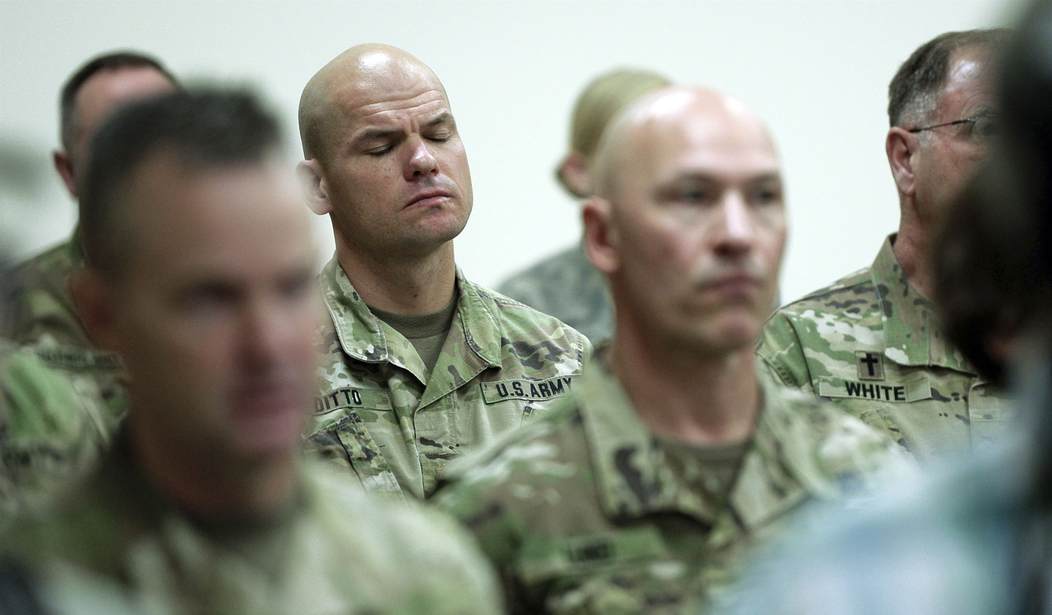The United States has a military, intelligence, and moral reason for American forces to remain in Afghanistan.
The Taliban fighting the Afghan government is a declared enemy of the United States. Leaving Afghanistan ensures that the Taliban will take over most of Afghanistan, which sadly is happening at a quickening pace. A Taliban victory opens Afghanistan to be a hotbed of terrorism as it was after the withdrawal of the Soviet Union and the United States and before the events of September 11, 2001.
Secondly, American withdrawal from Afghanistan creates an intelligence vacuum. American ground forces and their intelligence allies were great surveyors of information operations on the Taliban and international terrorism in Afghanistan. Further, such intelligence gathering extends to other interested parties in the area such as the Chinese, Iranians, Russians, Pakistanis, and other Central Asian nations. It is unconscionable that in one of the areas that can truly be described as a crossroads of the world, the United States will have little to no intelligence gathering capability. This lack of intelligence gathering capability will have profound implications regarding assessing capabilities of enemies of the United States, whether conventional or unconventional, as well as ascertaining future threats.
A Taliban win in Afghanistan will also have devastating effects on the morale of American troops when it comes to future conflicts, making it less like for American commanders and policy makers to recommend force when needed, encouraging less lethal force when necessary in conflict, and conversely making it less likely for American commanders to engage with the local populace in unconventional warfare situations like Afghanistan.
There is a way for American troops to stay in Afghanistan with a low footprint, which is the best strategy and most effective means of engaging with that tribal society. Such American troops most consist solely of Special Operations forces, most of them being Special Forces, Civil Affairs, and the formerly titled Psychological Operations; the forces that effectively won the war and were securing the victory in 2001-2002 when their numbers were only in the hundreds. It was only after conventional forces entered Afghanistan en masse that the American military effort in Afghanistan became less successful.
Recommended
The Special Operations soldiers are those who, like Lawrence of Arabia, believe in not only working with but living amongst the Afghan people. Afghan society is thousands of years old and trust is only won with their people by long-standing engagement. While no disrespect is intended, hard-charging 18-year-old troops are not the most effective means of engaging a society that lives, things and often fights as if they were in Biblical times.
Afghanistan seldom has been a united nation but is usually better thought of as an entity of different tribes. It is only when nations with a large footprint that come in to subjugate Afghanistan that Afghans fully unite as was seen in the war against the Soviet Union or in conflicts with Pakistan. A large footprint makes no sense as it is non effective and counterproductive.
Afghanistan can never be won in the conventional sense. There will be no taking of Berlin followed by a victory parade. What there can be is an unconventional strategy that, village by village and tribe by tribe, as opposed to the nation at large, drives the Taliban out. The United States should not abandon Afghanistan but remember it and its people while retaining its ability to fight terrorism and gain intelligence. Thankfully, it will not take a large conventional force to do this but a small force of specially trained lethal warriors who are culturally sensitive is appropriate.
Militarily and intelligence wise, a small force remaining in Afghanistan makes sense. Moreover, at stake is American moral leadership. When I served in Afghanistan in 2002, a common question asked of us was “When will the Americans leave?” After being asked several times I asked, “Why do people keep asking?” and the answer given has haunted me since. I was told “Because you (the Americans) always leave. You left Vietnam. You left Afghanistan before. You always leave.” We cannot forget the Afghan people. They will not forget, even if others wish to.
Larry Provost served in Afghanistan from 2002-2003 and in 2011. Views expressed are not those of the U.S. military or any government agency.

























Join the conversation as a VIP Member